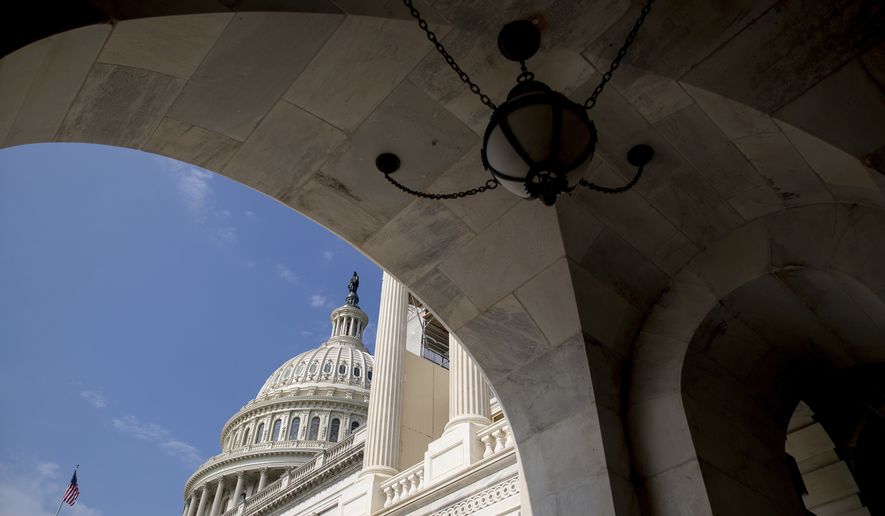The weather — and the relationship between the government and private sector in gathering data and providing forecasts to the American public — took center stage Wednesday, as a Senate panel grilled President Trump’s nominee to lead the National Oceanic and Atmospheric Administration (NOAA).
Barry Myers, former CEO of AccuWeather, spent much of his testimony before the Senate Commerce, Science and Transportation Committee trying to assure lawmakers there would be no conflicts of interest between his past career and his would-be role in the government.
In the past, Mr. Myers, a businessman and lawyer, has supported legislation that seemingly would have barred the government from issuing weather forecasts, instead allowing NOAA to funnel information only to private companies like AccuWeather.
He vowed Wednesday to never use his role at NOAA to boost profits or market share for AccuWeather, and said he’s fully divorcing from the company, though his brothers and other relatives remain there in prominent roles.
“There will be a complete separation. It’s the only way I could do this,” Mr. Myers said. “I will have no allegiance elsewhere.”
The issue of conflicts of interest has been a persistent theme throughout the Trump administration, with critics routinely charging that high-profile officials’ previous work could complicate their ability to perform their duties for the American people. Those charges have even dogged Mr. Trump himself, with Democrats claiming his business ties present clear conflicts.
In the case of Mr. Myers, Democrats acknowledged the nominee is likely to be confirmed by the Senate, but they hammered him Wednesday to take even greater action to ensure there’s not even the appearance of impropriety.
“You were behind a bill sponsored by Sen. [Rick] Santorum of Pennsylvania that would’ve prohibited the [National] Weather Service from offering a product or service that is or could be provided by the private sector a provision that would’ve directly benefited AccuWeather,” said Sen. Bill Nelson of Florida, the panel’s ranking Democrat. “If the bill had passed, Americans’ access to free and potentially life-saving weather forecasts would’ve been placed at risk.”
A strict reading of the 2005 measure, which did not pass, could have stopped NOAA from offering any weather forecasts on the popular Weather.gov website. Instead, those services would have been provided only by private firms, such as AccuWeather.
The issue is further complicated by the fact that AccuWeather and other private forecast companies rely almost entirely on government data for their projections, meaning the 2005 legislation would have allowed companies to make profits from government work done at taxpayers’ expense.
“AccuWeather does not have weather satellites they take government data and government forecasts and repackage them, in a way, and deliver them to consumers,” said Michael Conathan, director of ocean policy at the progressive Center for American Progress.
For his part, Mr. Myers repeatedly stressed that he in no way favors restricting free government weather forecasts, though he didn’t offer a full and complete explanation of why he supported the 2005 bill.
Moving forward, he promised to have no input whatsoever in the future of AccuWeather, and vowed to not offer any inside government information to family members still at the company.
“We may see each other at Thanksgiving dinner and we can talk about football and family things, but we cannot talk about NOAA,” he said.
• Ben Wolfgang can be reached at bwolfgang@washingtontimes.com.




Please read our comment policy before commenting.